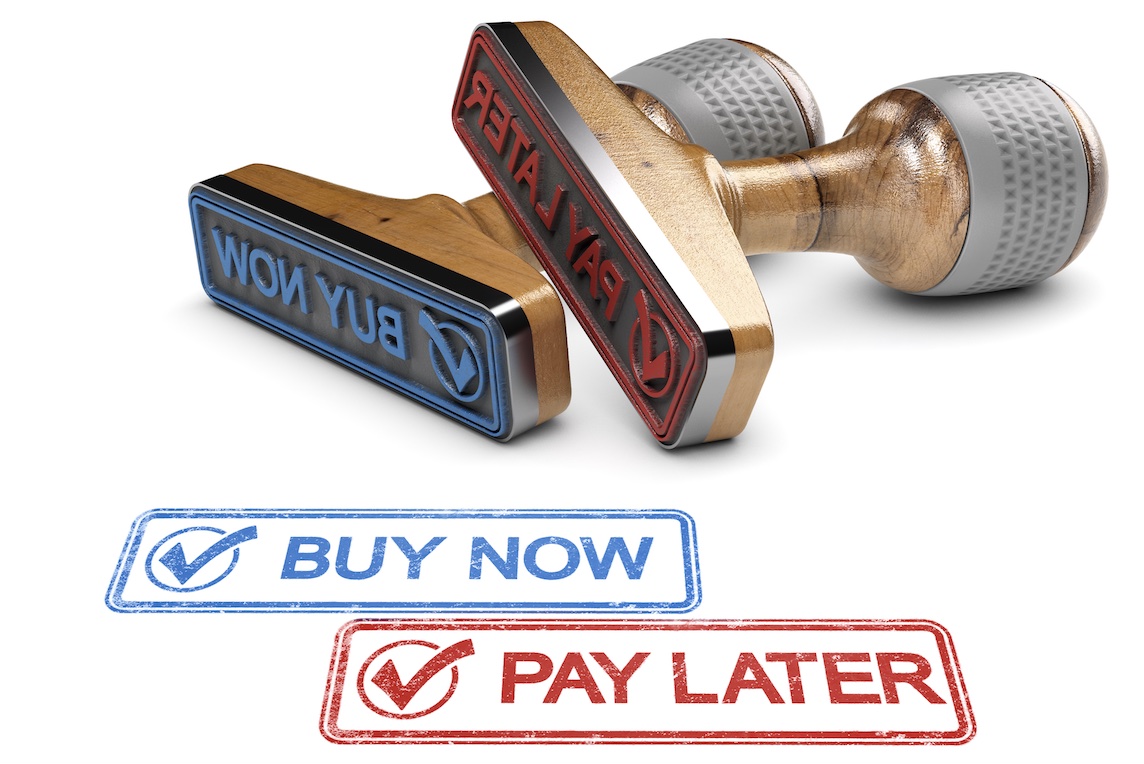|
BNPL Demand Remains Robust Into Q4
Consumers continue to shift towards buy now, pay later services as both retailers and financial institutions strike deals with the alternative payment providers.
MRP recently highlighted increased activity in the BNPL space among digital payment companies as well as e-commerce giants. Demand for BNPL services has only risen further over the last few months as consumers prepare for holiday shopping and turn to payment installment programs.
According to a Consumer Spend Report from BNPL provider Affirm, 56% of Americans are interested in using a pay-over-time solution, for their holiday shopping this year. Of that 56%, nearly 70% said they will use a buy now, pay later service to help keep them on budget, even when they’re able to pay for the item in full. The survey gauged the interest of 2,000 American consumers.
With retailers preparing for a busy holiday shopping season, BNPL providers look primed to strike additional deals and garner further interest from both consumers and businesses.
Per Business Insider, Walmart recently announced it would be completely scrapping its layaway program ahead of the holiday season, replacing it with a buy now, pay later financing option. Walmart, which has been partnered with Affirm since 2019, will now let customers take items home immediately and pay it off later over a three to 24 month period.
Similarly, USA Today reports that Target has added more buy now, pay later options with both Affirm and Sezzle, another BNPL service. The move is another sign that installment plans are increasingly replacing traditional layaway plans, as BNPL services can boost sales, especially when shoppers are currently looking to capitalize on early holiday deals.
Buy now, pay later companies have also garnered significant interest from a slew of financial institutions. American Banker writes that Goldman Sachs, issue of the Apple Card, is now the leader of Apple’s planned BNPL service called “Apple Pay Later”. Barclays is also jumping on the buy now, pay later trend by working with fintech Amount to develop a BNPL option for its merchant partners starting in April.
Reuters reports that Mastercard has also tapped into the buy now, pay later market as the sector threatens to chip away at the dominance of credit cards. Mastercard announced its new payment program will allow consumers to pay for purchases, both online and in-store, through equal and interest free installments, available in the US, UK and Australia.
BNPL Companies Grow While Threat of Regulation Intensifies
The impressive growth of buy now, pay later companies has yet to show any signs of slowing.
According to FIS Worldpay, BNPL is the fastest growing e-commerce payment method globally, with digital wallets coming in second. Worldpay predicts that the BNPL sector could grow at a compound annual growth rate of 28%, reaching $166 billion by 2023.
Afterpay, which was purchased by Square for $29 billion back in August, has nearly 16 million customers globally. Per PYMNTS.com, Afterpay has driven $4.5 billion in net benefits to US merchants, as well as $8.2 billion in incremental sales for retailers.
Klarna, another BNPL provider, says their merchant base reports a 45% increase in average order value when a shopper pays in four installments, CNBC notes. Similarly, Affirm reported that its merchant clients report an 85% increase in average order value when consumers utilize their service, illustrating how valuable buy now, pay later options can be for retailers.
BNPL providers have been spending like crazy to capitalize on the alternative payment boom. Investor’s Business Daily reports that the four biggest BNPL companies have spent $52 million on advertising through the first nine months of 2021, which is 130% higher compared to last year.
Affirm upped its advertising 1,000% year-over-year, looking to gain the largest share of the competitive BNPL market. Meanwhile, Klarna’s spending jumped 557%, according to data from MediaRadar.
However, booming growth often attracts heightened regulation.
Australia’s central bank has announced that BNPL firms can no longer prohibit merchants from passing on surcharges for their services, robbing the sector of one of its key advantages, says Reuters. The central bank’s new stance is poised to affect Afterpay the most, as it relies on high merchant fees to fund its business model.
UBS analysts said there is a strong risk that overseas regulators could impose similar restrictions on the industry.
Klarna has recently added a ‘pay now’ feature for consumers in the United Kingdom amid increased scrutiny from UK regulators, Bloomberg writes. Klarna has also had to implement stricter credit checks as well as clearer language at checkout that they are essentially taking out a loan with the company.
Regulatory concerns have been spreading as some critics claim these services encourage consumers to spend more than they can afford, as purchases through these platforms typically focus on wants and not needs.
While the sector may face additional government intervention, its rapid adoption cannot be overlooked. Buy now, pay later services will see their user bases grow further as practically every major retailer, payment provider and financial institution continues to try and grab a share of the market. |


Leave a Reply